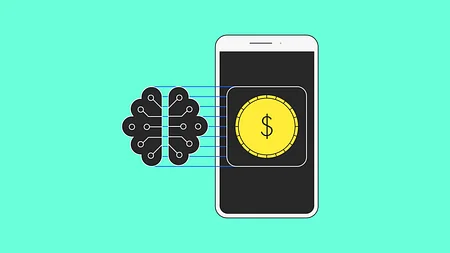Banks need to stop thinking Gen Z financial literacy will be built on TikTok

Financial literacy, it’s a silent pandemic. Gen Zs need all the help they can get.
This is taken from our Unfiltered newsletter. Subscribe now for a no BS, uncensored analysis of fintech news and hot topics delivered to your inbox each fortnight.
Defined as anyone born after 1996, this generation undoubtedly faces one of the most challenging financial environments to date.
Gen Z are worried and ill-equipped, yet hungry for an empowered future - a paradoxical combination
Despite being considered trend-chasers, Gen Z are fiercely independent and competitive when it comes to success in work, school and life. An optimistic generation who prefers to work smart, not hard. The drive to succeed comes from a desire for stability, in turn, becoming a gateway to freedom.
Influenced by growing up in the wake of the financial crash, coupled with the student debt crisis and the ‘life highlight reel, spending more than you can afford’ millennials, they are a generation eager to get started on their financial futures - 51% are afraid money will prevent them from doing what they want in life..
In spite of this, they are incredibly underserved. 67% of young people regularly worry about their personal finances, lacking even the most basic financial skills and awareness. In the UK, skills among the under-34s are c17% lower than the national average.
Advice from previous generations (and the banks that served them) are rapidly becoming obsolete
Some traditional ways of creating and capturing personal financial value are out of date. Parents and extended family don’t necessarily understand - or appreciate - side hustles and multiple streams of income. Fluency in digital banking and awareness of modern, born-digital options is low and alternatives to wealth creation (such as cryptocurrencies or little-and-often investing) are largely unknown or risk-associated prospects.
Furthermore, when your parents have banked with traditional institutions who’ve gotten away with just being ‘ok’, that advice is rendered unfit-for-purpose, leaving Gen Z unsure where to turn next.
But Gen Z have got phones? And the whole financial world at their fingertips?
Despite being digital natives, the online world of personal finance can be a daunting place. Advice and banking ‘speak’ is still laden with jargon and education is presumed, not provided.
So they’re gravitating towards TikTok. 39% of Gen Zers are seeking out personal financial advice from social media outlets, with 34% answering TikTok or YouTube specifically. With opaqueness in banking a feature, not a bug, Gen Z are desperate for finance to be humanised.
Content with the hashtag #PersonalFinance has garnered more than 4.4bn views, with #StockTok rapidly gaining momentum at 1.4bn and thousands of ‘fincluencers’ on the platform.
Largely, these content creators are responding to a desperate social need - being victims of an underserved world themselves - but there’s danger of bad advice or myths being spread and ‘get rich quick’ content. A prime example being the Reddit effect on GameStop shares. And that’s just the tip of the iceberg.
there’s danger of bad advice or myths being spread and ‘get rich quick’ content.
TikTok has now banned the promotion of various financial products, including investments and cryptocurrency, but a movement has been created and won’t slow down any time soon.
There are two broad opportunities for banks and financial institutions to interject. The first being awareness and consideration, for example, sharing new card designs or features, enabling community or committing to social causes and the second, building education.
But just because banks are in the palm of a Gen Z hand doesn’t mean they’re connected
TikTok will only uplift financial education so far. The real problem to tackle - and solution to develop - are products and services that are actually designed for Gen Z at the core. Getting it right will require more than just adding financial education materials to legacy offerings or adding a hot UI to an old product.
It’s not enough to add wrap-arounds, explainers or links to Martin Lewis, banks need to focus on a financial education service, that just so happens to have a product at the core - not vice versa. For this future-focused generation, it’s vital to develop products that focus on the journey that Gen Z need to undertake, and the associated tools and levers that will help them achieve the outcomes they desire - for example, credit score being a crucial requirement for flexibility in future choices.
Financial education is not just about knowing what APR stands for (which, by the way, no-one does) it’s about education through action. Helping Gen Z create money, move money, build wealth in increments (not overnight) and appreciating a cautious attitude to debt, offering alternative options for lending.
Fintechs such as Zogo, the ‘duolingo of financial literacy’, have honed in on the desire for progression and hunger for learning, building a closed-loop reward system of quizzes, gaming and a reward currency. Quirk, a personality-test based app determines user’s wants, needs and spending styles based on expert psychological principles, offering tools in budgeting, saving and subscription management.
Getting it right requires a value proposition that’s empowering and genuinely hits the mark. Being exposed to tech from the beginning, Gen Z are particular about who they choose. It’s about what the provider can do for them and their lifestyle. Trust-led, they’re also incredibly astute at spotting lack of transparency and offerings that have purely been developed for the benefit of the institution. Banks who try to enter the market with Gen Z ‘washing’ will fail.
Gen Z are particular about who they choose. It’s about what the provider can do for them and their lifestyle.
My unfiltered opinion
It’s not about entering a new market segment or satisfying ESG goals, it’s about leaning into the underserved, developing solutions in collaboration with Gen Z creators. Having overtaken millennials as the generation with the strongest spending power, and one third believing they won't need to rely on traditional banks in the future, the opportunity is one of necessity. It’s one that is daunting yet thrilling (and rewarding) in equal measure, and it’s there for the taking.



